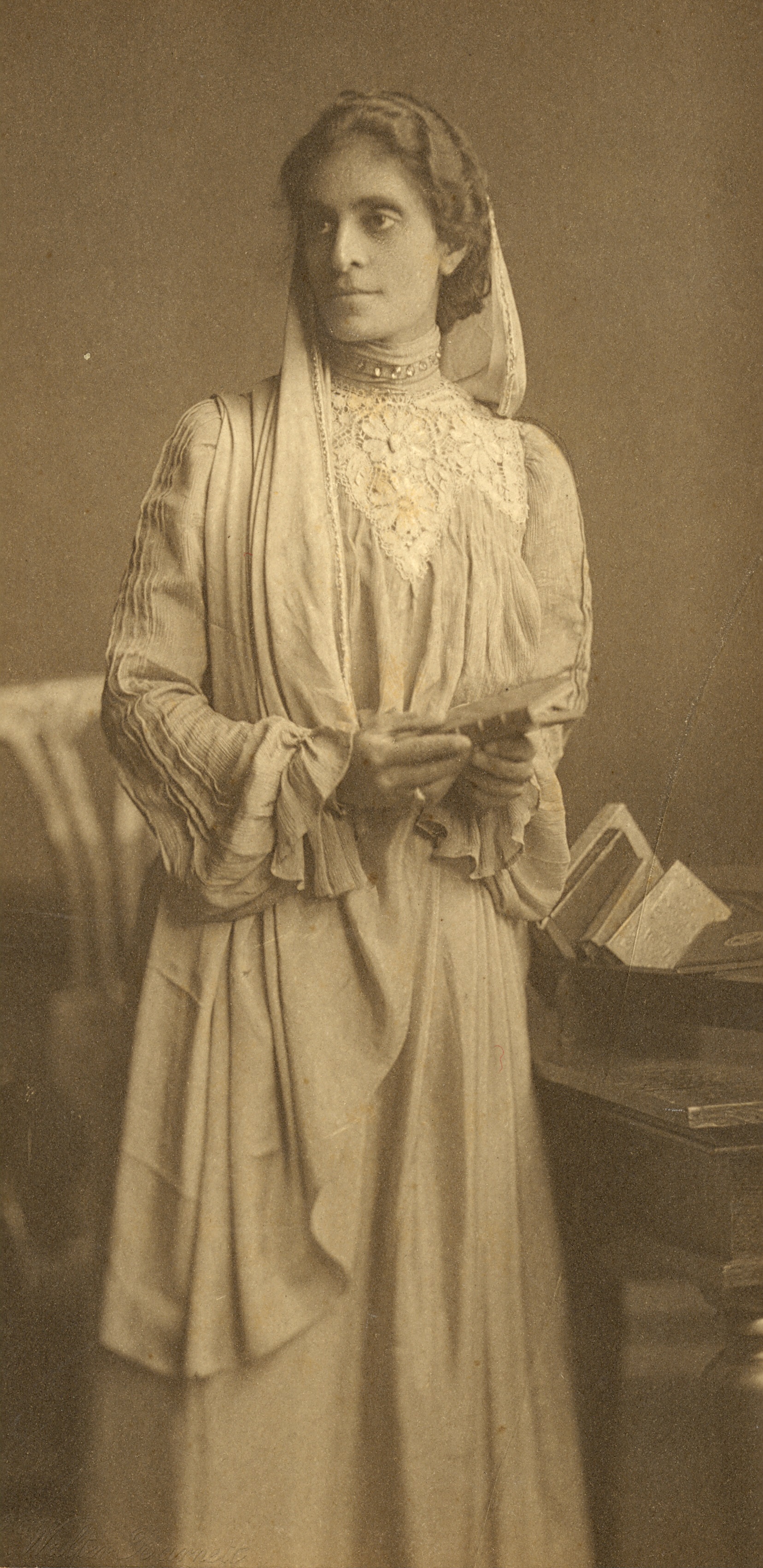Alumna: Cornelia Sorabji
Cornelia Sorabji (1866 - 1954) was the first woman to study law at Oxford.
 On the eve of her BCL exams in 1892, Cornelia Sorabji dreamt that an elderly man stopped her as she came to a graveyard, and said, ‘Go elsewhere. You cannot be buried here.’ But she passed the BCL exams, and returned to India with very loving memories of Oxford.
On the eve of her BCL exams in 1892, Cornelia Sorabji dreamt that an elderly man stopped her as she came to a graveyard, and said, ‘Go elsewhere. You cannot be buried here.’ But she passed the BCL exams, and returned to India with very loving memories of Oxford. A student of Somerville Hall (as it was called from its foundation in 1879 until it became Somerville College in 1894) Sorabji was the first woman to graduate from the University of Bombay, and the first woman and the first Indian to read for the BCL in Oxford. Benjamin Jowett, Master of Balliol and vice chancellor, served as a mentor and introduced a resolution in Congregation to enable her to sit the BCL exams with the other students in the Examination Schools.
Sorabji became the first woman to practise law in India. She worked for many years as a legal advisor to women and children on matters in provincial courts, and as a ‘Lady Assistant’ to the Court of Wards. She finally became qualified as a barrister when women were admitted to the profession for the first time in 1923.
Sorabji had an ambivalent attitude to British rule: she was wary of transplanting western values to India, but she opposed Mahatma Gandhi’s campaign for Indian self-rule. Along with her work as an advocate for individual women and children, she became an advocate of social reform, campaigning in particular for education for girls, for legal rights for women subject to segregation (purdahnashins), for abolition of child marriage, and for protection and support for widows.
‘…next to home there is no place like Somerville’
–Cornelia Sorabji in a letter to her mother
Dear Oxford—no other place can ever be to me what thou art!’
–Cornelia Sorabji in her diary, on leaving Oxford
My big responsibilities, as you call them, didn't blind me to the fact that a young woman, seeking to train as a lawyer to fit herself to help her fellow country-women in difficulties was something very important indeed. It was a sign of something big. An omen perhaps too.
–Benjamin Jowett to Cornelia Sorabji

